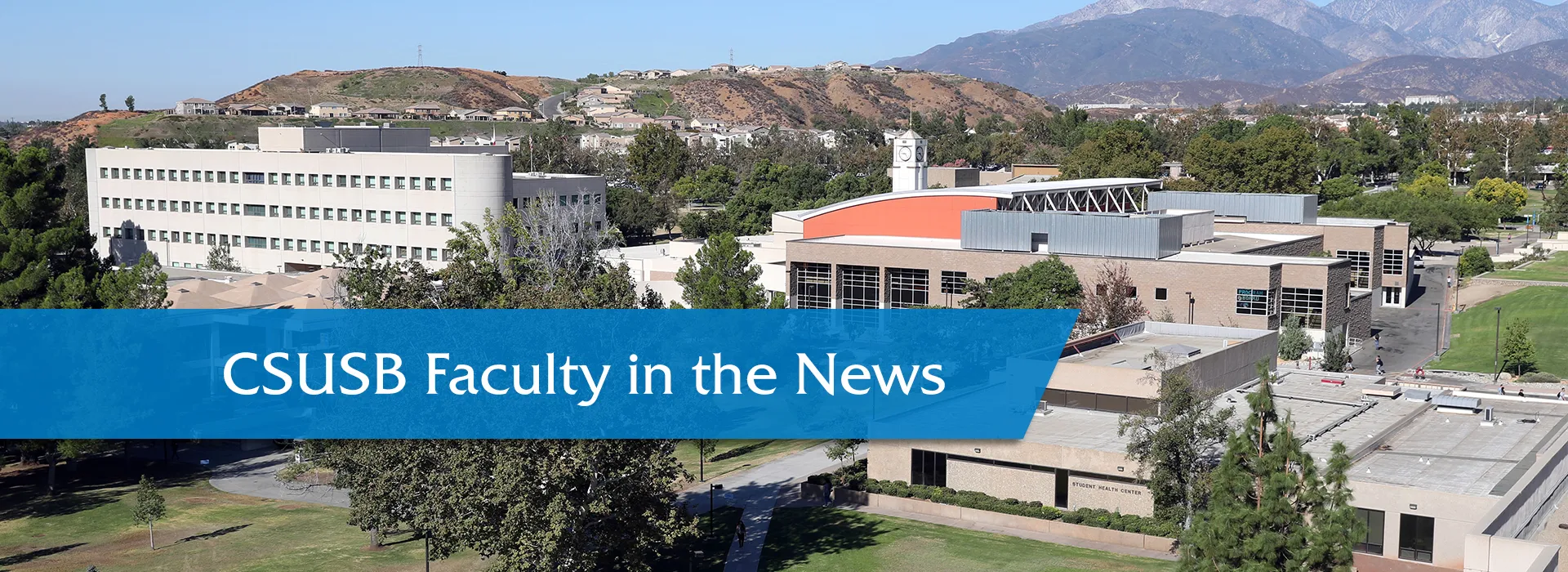NOTE: Faculty, if you are interviewed and quoted by news media, or if your work has been cited, and you have an online link to the article or video, please let us know. Contact us at news@csusb.edu.
Art show juried by CSUSB professor emerita opens in Redlands Feb. 23Redlands Daily FactsFeb. 21, 2018
The Redlands Art Association’s 49th annual Multi-Media Mini Show, judged by Sant Khalsa, CSUSB professor emerita of art, will formerly open on Friday, Feb. 23 at the association’s gallery in downtown Redlands.
“I have never found jurying an exhibition an easy task and this show was no exception. There were more quality artworks to select from than there is wall and pedestal space to install them on,” Khalsa wrote in her juror’s statement.
“As an artist and art educator, I have a deep understanding of the art-making process and the emotional risk that comes in sharing one’s work in a public venue. I applaud all of the artists that entered the show for their commitment to their studio practice and willingness to share the fruits of their creative labor with the Redlands community,” she wrote.
The show runs through March 11.
Read the complete article at “Want to see mini art in many media? Check out Redlands Art Association’s Multi-Media Mini Show.”
CSUSB professor comments on increase of threats against schools in wake of Feb. 14 Florida mass shootingThe Press-Enterprise/The Sun/Inland Valley Daily BulletinFeb. 21, 2018
In the week since police say Nikolas Cruz killed 17 people at a Florida high school, reports of threats of violence against schools in Southern California and around the nation have poured in to police departments and schools.
Such threats are not new, police say, and whether the actual number has increased in Southern California since the Feb. 14 tragedy at Marjory Stoneman Douglas High is debatable, experts say.
Professor Brian Levin, the director of the Center for the Study of Hate and Extremism at Cal State San Bernardino, said threats and other acts of violence are often reflexive after a notable event.
“In the past when there was saturation coverage of car-to-car shootings in California, we saw spikes in that, or when there is a terrorist attack, we see hate crimes go up,” he said.
“This is the so-called copycat effect we think exists,” said Jim Bueermann, a former Redlands police chief, the president of The Police Foundation, an organization that researches and promotes better policing, and a CSUSB graduate.
Those who have studied violent crime have discovered “a folkloric narrative as fame as being part of the revenge,” Levin said. “For people who felt disenfranchised, the idea that they could assert themselves through violence is a terrible thing because now the threat of violence is now not only a form of revenge but also expressional validation. … The celebritization of violence.”
Levin said some who have no plan to carry out violence will make threats against schools for excitement or to disrupt government institutions whose trust among the public is at historic lows.
“But there are others who are disenfranchised and are doing this (attack) either as a call for help or as revenge or to make their mark at a place where they were invalidated or made invisible,” Levin said.
Read the complete article at “School threat reports pour in and are being taken seriously, Southern California experts say.”
To save Ethiopia from civil war, solutions must work from the ground up, CSUSB professor writesThe HillFeb. 21, 2018
In an op-ed piece, CSUSB political science professor Alemayehu Mariam wrote: “Ethiopia teeters on the edge of a precipice. For the past two years, waves of defiant public protests have made the country ungovernable and posed an existential threat to the ruling party that has been in power since 1991.
“The current crisis has roots in closure of political space, increasing repression and uncompromising one-party rule in the country. In the 2010 parliamentary election, the ruling party claimed 99.6 percent of the seats and 100 percent of the seats in 2015. In October 2016, regime forces used deadly force in which over a 1000 people were killed and tens of thousands detained by security forces. The regime blamed “anti-peace elements” and Diaspora-based Ethiopian opposition groups for the unrest.”
Read the complete article at “To save Ethiopia from civil war, solutions must work from the ground up.”
These news clips and others may be found at “In the Headlines” on the Inside CSUSB website.
